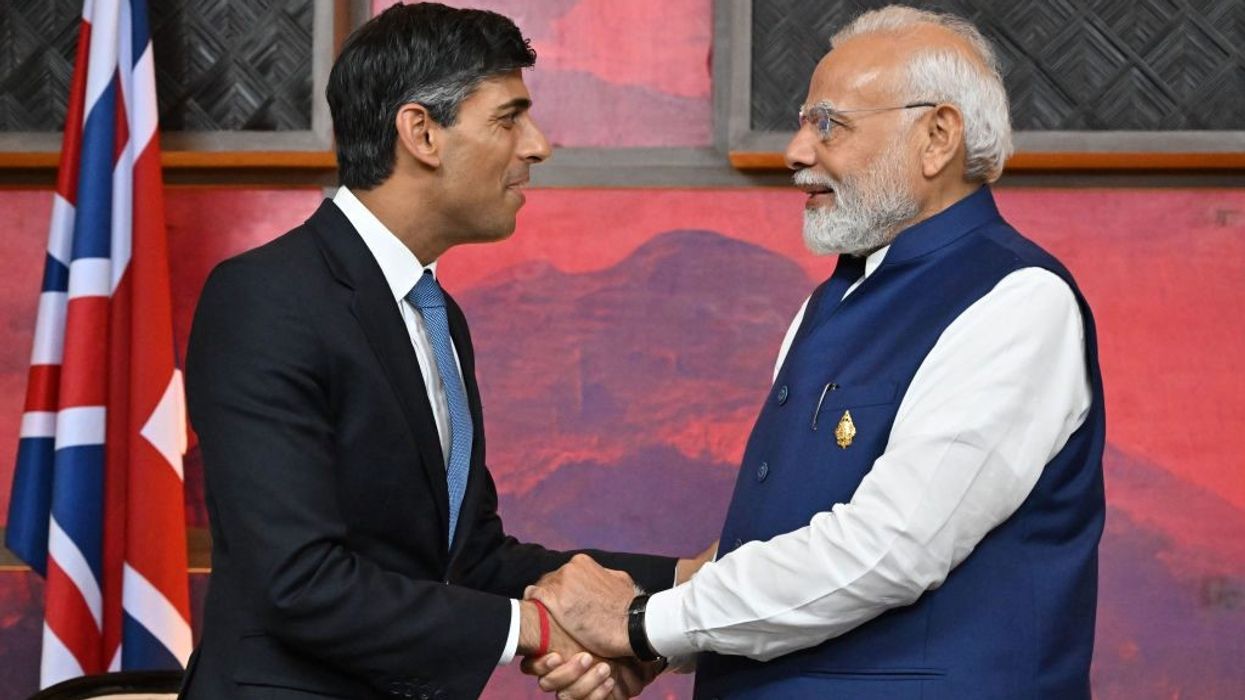India and Britain are struggling to make progress in free trade talks due to differences on some key tariff lines and investment protection rules, making a deal unlikely during prime minister Narendra Modi's second term ending next year, Indian sources said.
The two nations are unable to agree on concessions on duties levied by India on car and liquor imports, a government official with direct knowledge of the matter said.
Besides tariffs, Britain is also pushing India to agree on strong investment-protection provisions either as part of the deal or in a parallel investment treaty, according to a second government official.
"Britain has insisted on investor protection if it were to proceed with a final deal," said the person who has direct knowledge of the talks.
A deal between India and the UK is crucial for New Delhi, which hopes to become a bigger exporter, while the UK would get wider access for its whisky, premium cars and legal services.
For India, a deal with the UK would be its first with a developed country after it signed an interim trade pact with Australia last year. It comes at a crucial time for Modi, who is looking to solidify India's business-friendly image in the run up to national elections next year.
Britain, on the other hand, has prioritised a deal with India as part of its Indo-Pacific foreign policy tilt aimed at enhancing ties with the region's fast-growing economies.
The main disagreement on the investment protection provisions is Britain's insistence that its companies be allowed to seek international arbitration should a dispute arise without going to Indian courts first, said the second government official who is directly involved.
This would be a marked departure from India's present provision that calls on companies to exhaust local remedies first, and is not agreeable to the Indian government, said a third senior government official.
"We had kept November as another soft deadline. But does not look like this is going to work out till at least next year. Maybe after the general elections in India," a fourth government official said.
Both nations are set to hold general elections next year where India's Modi will seek a rare third term while British prime minister Rishi Sunak faces a stiff test of electoral popularity after a choppy term for the Tories.
As of the end of April the countries were unable to complete discussions on any more chapters than they had in December. They have agreed on terms of 13 out of 26 chapters that constitute the pact.
The two countries have also ruled out the possibility of an interim pact, two of the sources said.
All officials spoke to Reuters on the condition of anonymity as negotiations over the trade agreement are private.
India's ministries of trade, finance and external affairs did not respond to a request for comment.
A spokesperson for the UK's Department of Business and Trade said the two countries are "committed to working towards the best deal possible for both sides."
"We are clear that we will only sign when we have a deal that is fair, balanced, and ultimately in the best interests of the British people and the economy," the person said.
Sunak's approach to focus on quality over speed of the deal is in contrast to Boris Johnson, who as prime minister had set a deadline of Diwali last October for a deal, which was then missed under the tenure of his successor Liz Truss.
(Reuters)





